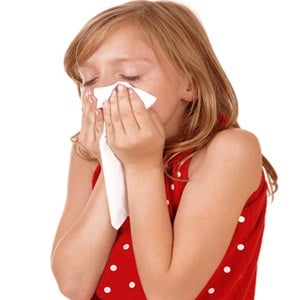
Kids who were premature babies are more likely to develop pneumonia and other flu-related complications, so they should be first in line for yearly flu shots, researchers suggest.
Current guidelines don't identify them as a high-risk group, but they should, researchers say.
Read: Symptoms of flu
However, current U.S., U.K. and World Health Organisation guidelines do not identify these kids as a high-risk group for flu complications, the study authors noted.
In their analysis, the researchers reviewed data from 27 studies that included more than 14 000 children.
Fairly new study
The finding about children who were born prematurely is new, according to the report published in The Lancet Respiratory Medicine.
"Considering that around 10 percent [12.9 million] of the world's babies are born prematurely [before 37 weeks gestation] – with preterm delivery rates of around 6 percent in Europe, 11 percent in North America and 12 percent in Africa – it's a significant public health issue and has major implications for policy makers," study author Dr. Kay Wang, from the University of Oxford, said in a journal news release.
Read: Preventing flu
The researchers also confirmed U.S., U.K. and WHO guidelines that state children with neurological disorders, weakened immune systems and diabetes are at increased risk for flu-related complications.
Toddlers at greater risk
Youngsters with sickle cell disease and those younger than 2 are also at greater risk but are not deemed to be so under current British guidelines, the study authors added.
They also found that obese children and those with respiratory disorders are not at higher risk, even though the U.S., U.K. and WHO guidelines state that they are.
Another important finding is that having a number of medical conditions increases a child's risk of being hospitalised with flu-related complications.
Hospitalisation rates were 74 percent for children with more than one medical condition, compared with 48 percent for those with one condition.
Read: Causes of flu
"Policy makers need to be aware of which groups of children should be prioritised when delivering interventions [e.g., flu vaccination and antiviral drugs] to prevent influenza and influenza-related complications, particularly during influenza epidemics and pandemics," Wang concluded.
Read More:
Flu and smokers
Flu shot a good choice for seniors
Steer clear of cold medicine for babies
Image: A young girl blowing her nose from Shutterstock.




 Publications
Publications
 Partners
Partners















